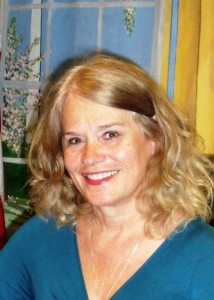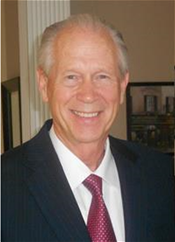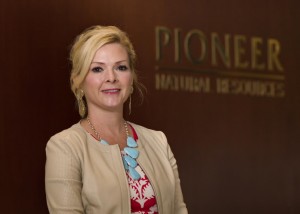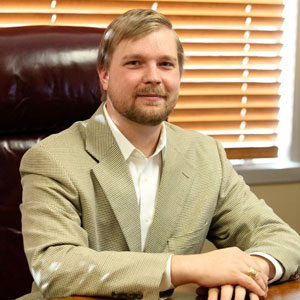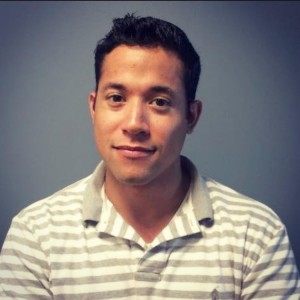By Shanti Terry
As times change, people change. No industry is immune to the effects of this undeniable principle. For today’s oil and gas industry, the workforce best demonstrates these changes. In this series of articles, we will address the prevailing questions regarding how things are changing and why. For this, the first segment of the series, we take a closer look at some of the major changes in the workforce and their roots. Later discussion in this series will include an in-depth examination of issues arising from workforce changes, their solutions, and plans for the future.
The oilfield of the past can be likened to a standard transmission automobile, requiring strictly hands-on operation. Today’s oilfield is like today’s vehicles—technological advances can get things moving faster and more efficiently.
With several different generations working together come vast differences in mentality, work ethics, and goals among those in the workforce. A younger workforce moving into place brings change for prior generations as they begin stepping away from the industry. It means changes for employers, as well.
A Generation Gap
In looking around the oil and gas workforce today, one notices the age range between employees. All industries have a range of ages, of course, but in the Permian Basin energy industry there exists a large gap in that age range—there isn’t a gradual, steady continuum of ages. There are workers who are older, in their late forties and up, and but the next-younger segment of any significant size is comprised of workers who are often at least 15 years younger than the middle-aged ones. The market crashes of the ’80s and ’90s brought a sort of washout in the oil and gas workforce. Most who are reading this will have heard of or even experienced those downturns, and even today we are feeling their effects. With prices so low and the industry relatively slowed from the mid-’80s to the early 2000s, it’s no wonder the age gap in the oil and gas industry exists, bringing differences in the mindsets between the two generations.
Education
The younger generation is very comfortable with technology; however, due to technology itself, there is a lack, some would say, of certain other valuable skills. Elaine Cullen, president and owner of Prima Consulting, is one such individual. At Prima, Elaine works hard to help with safety, health, and leadership training for supervisors. Prior to starting her consulting company, Elaine worked as a researcher for the U.S. Department of Mines. With over 45 years of experience in research concerning extractive industries, she had much to share concerning the differences from the past to the present, starting with educational differences in the workforce.
The first difference she highlighted was the decline in training to use the most basic hand tools. “Twenty and thirty years ago every kid grew up using hand tools. They tinkered and knew how to fix things, like their own cars. That isn’t the case now. Today a lot of schools are dropping their shop classes because they’re expensive and there’s a high liability for kids getting hurt.”
Cullen also said that she’s learned, from her experience helping to develop training techniques for rig managers, that some younger generations are still not learning to work with their hands, which leads to performance issues in the world of skilled blue collar labor. “In talking with rig managers across the country, I asked what they would like for us to teach people and what things would be most beneficial. They said I should teach them how to use a hammer, or better yet what one looks like.”
Cullen went on to explain that the rig managers said that some workers didn’t know the difference between a screwdriver and hammer or what to do with either one of them. “That’s a big issue when you are working in a skilled blue collar industry. Those are the tools of their trade.”
The second thing Cullen mentioned as a difference between older and younger employees’ education today was a lack of STEM (Science, Technology, Engineering, and Math) skills. Cullen shared that she spent a great deal of time investigating why STEM skills are lacking. Her explanation of the problem was simple, yet profound. “If a person has an interest in science, then more than likely they will go into that field and become a scientist of some kind. They’re probably not going to become a fourth grade teacher. People who go into education may not have STEM skills.” Cullen experienced the truth of her statement when she worked in a program designed to teach teachers about earth science. “Some of them are science-phobic and they’re not prepared to teach those things or they’re bored by it. How can you teach that to someone if you don’t know how?”
Dr. Bill Price, dean of the College of Business and Engineering at UTPB, seconded Cullen’s findings that there are younger individuals in the workforce who may not be tech savvy. Dr. Price’s knowledge concerning the workforce population comes from his many years of involvement with the Human Resources industry. He has been a member of the Permian Basin SHRM (Society for Human Resources Management) for about 12 years, and served as president of the organization for a time. “Hiring older individuals who are not tech savvy can be a problem, but there are also younger individuals who are not tech savvy,” said Price. “They may know their way around their cell phone well, but that’s about it. The expectation is that young people fully understand what they can use on the internet and where they can get information.”
Changes In Worldview
As education for the workforce is changing, so are the mentalities, desires, and goals of individuals in the oil and gas workforce. While those in older generations seek to feel useful no matter the cost, (working long hours and displaying extreme loyalty to one company), younger workers in the industry have a different view of what a work life should be.
Flexibility
Teresa Fairbrook, vice president of human resources at Pioneer Natural Resources, has been in the industry for 19 years. She shared that, during her time, she has seen changes in two main areas concerning employees’ mentalities about work. The first she spoke of was the younger generation’s desire for more flexibility. “With the generation of Baby Boomers, they work a lot of hours either in the field or the office. Putting in time and being loyal is a major part of their success. Millennials would like to have flexibility in their work schedule, like the ability to work from home. They also want ways to work faster and better and get more time off.” Teresa went on to say that she doesn’t feel that the desire for flexibility is a negative, but a demonstration of how the mentalities about work have changed over time. “Work flexibility is a big deal. We have some people that are good workers, but they don’t want to be working a lot of overtime hours. Some people might see that as lazy, but the things their interested in are not what I’d consider to be lazy. They’re very much motivated to help the community and get involved in activities.”
Rewards
In respect to the way that individuals in the workforce want to be rewarded for their achievements, Fairbrook shared that, for the younger workforce at Pioneer, she’s seen a greater desire for time off. “We’ve had contests within the company, and I’m frequently asked about getting an extra vacation day as a reward. A group of young engineers won once, and I tried talking them into a cash prize and other options, but they wanted that extra vacation day. The same goes for field workers—they value time off too.”
Cullen chimed in, offering an explanation for why it is that work flexibility and time off are so highly valued by the workforce today. Recognition, praise, and monetary incentives are also great incentives, so why are they not preferable? Cullen said, “Children saw their parents working all these extra hours, sacrificing their time, which was not always good for the family. The kids watched and decided that was not what they wanted. They want to enjoy the fruits of their labor.”
Loyalty
Loyalty from today’s workforce is in short supply according to the experts, which is a change from the way things used to be. Although it’s not unheard of for an employee to stay with a company for life, the expectation is no longer there for a number of reasons.
According to Dr. Price, the mobility that came with the advent of the 401K is the cause. “It used to be that employees would stay a few years, see if pensions started to grow and then not change the company. The concept of a 401K allowed employees to change from company to company because of the portability. There’s a new culture now where the mentality is that it doesn’t matter how long you’ve been with a company. If someone offers you something better, you jump to the new company. It’s just the way things are. That’s a change in work ethics.”
Cullen agreed with Dr. Price’s opinion that “company jumping” is common today, but for different reasons. She said, “Baby boomers like myself fully expected that if we worked hard for a company, when the time care to retire, they would look after us. A lot of companies are not doing that. It’s not very moral, but they’re cutting their most expensive employees loose as they approach retirement because the companies don’t want to pay. Our kids watched that, and it was very evident to them that those companies broke that trust. So they started thinking about why they would be loyal to a company that wouldn’t be loyal to them.”
Although generalizations can’t be made to include all those in the workforce today, a few conversations with any group of individuals selected at random would likely prove that loyalty to a company is not the way the career game is played anymore, not unless an employee can be absolutely sure the company they’ve chosen is trustworthy.
With changes occurring in the desires and work ethics of the workforce, employers are finding themselves in positions that require change as well. Employees that want flexibility and time off. Employers can accommodate this, but in order to do so, there is a price to pay. Employers have to pay to train employees to increase their value to the company, and employers must pay to get programs in place that cater to employees’ needs and desires. They must pay employees well, and employers must pay the price if they fail to retain those employees.
Stay with us next month for the second part of this series in the next issue, as we delve into how changes in the workforce prompt changes in employers.
Millennial Perspectives
From speaking with long time industry professionals about the changes in the workforce for oil and gas, we found that millennials seem to hold quite a bit of sway, as they are the generation that will assume leadership when the traditionals, baby boomers, and generation X employees cycle out of the industry. To get more insight on the matter of how things look from the inside looking out, we spoke with two hard-working millennials who are currently making their way through the oil and gas industry, K.C Stallings (29) and Adam Hernandez (28).
K.C. Stallings is actively involved in Business Development and mineral acquisitions for Desert Royalty Company. The company was founded by K.C.’s father, Kyle Stallings, and specializes in long-term purchases of producing and non-producing mineral assets. K.C joined Desert Royalty Company in 2011.
Adam Hernandez works at Schlumberger, where he started as a field supervisor four years ago. He is now a Drilling Fluids Engineer. The company provides a wide range of products and services for operations in exploration, production and other steps along the way. Last year, Schlumberger grossed $48.58 billion in revenue.
To begin, we asked Stallings and Hernandez to describe their work environments concerning age. Both said that, although there is a mix, most of the individuals they are surrounded by day to day are younger, in their 20s and 30s.
On Technology
When asked about there being a noticeable gap in technological competency between themselves and older generations, both Hernandez and Stalling said they noticed, but that many individuals are adaptable.
Stallings: I think there is a technology gap. The younger is more experienced and interested in technology. However, I think the gap is shrinking. I am seeing the older generation shift to receiving information and news via texts and Facebook newsfeeds.
Hernandez: I have come across older individuals that were not tech savvy more often than I have younger, but my generation was born with technology and we know nothing different. Still, I’ve seen older generations picking up and learning new ideas and using technology for their advantages. For example, my dad has been running his own oil and gas related business successfully for over 20 years, and I see him taking advantage of using technology like his smart phone for invoicing, emails, and things like that. He was not doing that five years ago.”
Elaborating further on the issue, Stallings said that although it may be true that some of the older individuals at Desert Royalty Company do not implement all of the technology available to them, they have tremendous respect and appreciation for it, and they understand its value. “Specifically, my dad has an attitude that shows he is happy to invest in technology if it means helping implement the job more efficiently. He doesn’t have to understand every nuance of how the technology works, but he certainly understands the importance of using current technology.
Stallings also gave an example of how technology has provided better efficiency that the older generations of the workforce can appreciate. “We download files from subscription websites in minutes that used to take weeks of physically ordering the data and then manually entering the data into a computer.”
Relationships and Generational Differences
With those above millennials being quite a bit older, the working relationship between the two was a question of extreme importance. We asked Stallings and Hernandez if they felt respected and had their opinions valued by those older individuals around them, both felt that they are legitimized, respect is exchanged, and that they have value to offer.
Stallings: I feel like an equal amongst coworkers that are older and have more experience than me because they are all so accessible. I at least feel like my opinion is valued and respected.
Hernandez: Respect in any profession is not given freely, but has to be earned. Older individuals that have decades of experience working their field have earned their respect. That being said, I believe I have connected and earned respect from the older individuals that I have gotten to work with, because of the team effort we put forth and the shared results.
Things that each young professional has taken away from working with the older generations include a desire for independence as well as wisdom.
Stallings: When I finished school there was not an invitation for me to immediately join Desert Royalty Company. I am thankful for this, because I probably would have taken it, but I gained a different perspective from working in a non-oil and gas industry for the first three years of my career.
Hernandez: Growing up in Midland, the majority of my friends’ parents are somehow involved in the oil and gas industry, and that’s including my own father. I use this resource to my advantage seeking wisdom on relational skills, work ethics, and how to see and pursue opportunities.
A final question relating to relationship dynamic between these two younger professionals with their older counterparts was about workloads and dedication. We asked whether or not they thought they worked as hard or harder as generation before.
Stallings: I think we all work very hard. The older generation has a different role than us young guys. It is most important for the young guys in our office to be able to spend the time in the office and organize the details so the right decision can be made. It seems like the older generation has to work harder at maintaining relationships and long-term strategy of the company they have invested their time and life’s work in. I don’t think I would trade them—they have a lot more to consider and a lot more consequences than the decisions I have to make.
Hernandez: There is always someone who works harder and you have to try and learn from his or her ethics in this business to stay ahead. I tend to analyze situations first in order to find a route that is smarter not harder, and I feel that is a shared attribute among the professionals working in my field.
Work World Views
In considering different work ethics, we found that some responses lined up perfectly with common assumptions, while others were refreshingly unique.
Why did you choose oil and gas?
Stallings: I chose to work in oil and gas because of the opportunity it provided. Financially there are plenty of incentives over other industries, but another great incentive is the fact that my family is in the business and this opportunity has allowed me to be in a position to one day represent their interests.
Hernandez: I grew up surrounded by the oil and gas industry but never thought to pursue a career in it until my senior year of college when I took a class called “History of American Petroleum.” My professor really brought to light the interest and the opportunities that were literally in my back yard. The difficulties of finding a job right out of college paired with the benefits and money that oil and gas industry can provide also played a role.
How do you prefer to receive rewards for a job well done?
Stallings: Monetary incentives are great, but I like to receive them when the company as a whole is doing well and everyone gets to share in that financially. When people are motivated by individual incentives, it can misalign the interests of the company. I also enjoy recognition, and I like the way Desert Royalty Company gives credit to all those involved in the success of a project. No one individual takes all the recognition—it’s deflected onto others.
Hernandez: If two people have the same job and one outperforms the other, I believe the one who outperforms should have the recognition for a job well done whether that is a bonus or prospect of some sort of advancement or promotion.
How much of your time are you comfortable with your work life taking? Are you able to maintain that balance at this time?
Stallings: I like working—I enjoy my job. I expect to spend the vast majority of my workdays devoted to these duties. I’m comfortable with this balance in this stage in my life. I would hope this could result in a more flexible schedule in the future.
Hernandez: For me, the balance is based on returns. I am willing for more of my time to be consumed by work based on the results of that time working, be it compensation or investment.
Indeed the workforce is changing. You’ve now heard it straight from the horse’s mouth, as these two individuals who are living through the changes explained. Next time, we’ll take a look at other generations’ perspectives as we continue to explore why today is not your grandfather’s oilfield.
Millennial Perspectives
From speaking with long time industry professionals about the changes in the workforce for oil and gas, we found that millennials seem to hold quite a bit of sway, as they are the generation that will assume leadership when the traditionals, baby boomers, and generation X employees cycle out of the industry. To get more insight on the matter of how things look from the inside looking out, we spoke with two hard-working millennials who are currently making their way through the oil and gas industry, K.C Stallings (29) and Adam Hernandez (28).
K.C. Stallings is actively involved in Business Development and mineral acquisitions for Desert Royalty Company. The company was founded by K.C.’s father, Kyle Stallings, and specializes in long-term purchases of producing and non-producing mineral assets. K.C joined Desert Royalty Company in 2011.
Adam Hernandez works at Schlumberger, where he started as a field supervisor four years ago. He is now a Drilling Fluids Engineer. The company provides a wide range of products and services for operations in exploration, production and other steps along the way. Last year, Schlumberger grossed $48.58 billion in revenue.
To begin, we asked Stallings and Hernandez to describe their work environments concerning age. Both said that, although there is a mix, most of the individuals they are surrounded by day to day are younger, in their 20s and 30s.
On Technology
When asked about there being a noticeable gap in technological competency between themselves and older generations, both Hernandez and Stalling said they noticed, but that many individuals are adaptable.
Stallings: I think there is a technology gap. The younger is more experienced and interested in technology. However, I think the gap is shrinking. I am seeing the older generation shift to receiving information and news via texts and Facebook newsfeeds.
Hernandez: I have come across older individuals that were not tech savvy more often than I have younger, but my generation was born with technology and we know nothing different. Still, I’ve seen older generations picking up and learning new ideas and using technology for their advantages. For example, my dad has been running his own oil and gas related business successfully for over 20 years, and I see him taking advantage of using technology like his smart phone for invoicing, emails, and things like that. He was not doing that five years ago.”
Elaborating further on the issue, Stallings said that although it may be true that some of the older individuals at Desert Royalty Company do not implement all of the technology available to them, they have tremendous respect and appreciation for it, and they understand its value. “Specifically, my dad has an attitude that shows he is happy to invest in technology if it means helping implement the job more efficiently. He doesn’t have to understand every nuance of how the technology works, but he certainly understands the importance of using current technology.
Stallings also gave an example of how technology has provided better efficiency that the older generations of the workforce can appreciate. “We download files from subscription websites in minutes that used to take weeks of physically ordering the data and then manually entering the data into a computer.”
Relationships and Generational Differences
With those above millennials being quite a bit older, the working relationship between the two was a question of extreme importance. We asked Stallings and Hernandez if they felt respected and had their opinions valued by those older individuals around them, both felt that they are legitimized, respect is exchanged, and that they have value to offer.
Stallings: I feel like an equal amongst coworkers that are older and have more experience than me because they are all so accessible. I at least feel like my opinion is valued and respected.
Hernandez: Respect in any profession is not given freely, but has to be earned. Older individuals that have decades of experience working their field have earned their respect. That being said, I believe I have connected and earned respect from the older individuals that I have gotten to work with, because of the team effort we put forth and the shared results.
Things that each young professional has taken away from working with the older generations include a desire for independence as well as wisdom.
Stallings: When I finished school there was not an invitation for me to immediately join Desert Royalty Company. I am thankful for this, because I probably would have taken it, but I gained a different perspective from working in a non-oil and gas industry for the first three years of my career.
Hernandez: Growing up in Midland, the majority of my friends’ parents are somehow involved in the oil and gas industry, and that’s including my own father. I use this resource to my advantage seeking wisdom on relational skills, work ethics, and how to see and pursue opportunities.
A final question relating to relationship dynamic between these two younger professionals with their older counterparts was about workloads and dedication. We asked whether or not they thought they worked as hard or harder as generation before.
Stallings: I think we all work very hard. The older generation has a different role than us young guys. It is most important for the young guys in our office to be able to spend the time in the office and organize the details so the right decision can be made. It seems like the older generation has to work harder at maintaining relationships and long-term strategy of the company they have invested their time and life’s work in. I don’t think I would trade them—they have a lot more to consider and a lot more consequences than the decisions I have to make.
Hernandez: There is always someone who works harder and you have to try and learn from his or her ethics in this business to stay ahead. I tend to analyze situations first in order to find a route that is smarter not harder, and I feel that is a shared attribute among the professionals working in my field.
Work World Views
In considering different work ethics, we found that some responses lined up perfectly with common assumptions, while others were refreshingly unique.
Why did you choose oil and gas?
Stallings: I chose to work in oil and gas because of the opportunity it provided. Financially there are plenty of incentives over other industries, but another great incentive is the fact that my family is in the business and this opportunity has allowed me to be in a position to one day represent their interests.
Hernandez: I grew up surrounded by the oil and gas industry but never thought to pursue a career in it until my senior year of college when I took a class called “History of American Petroleum.” My professor really brought to light the interest and the opportunities that were literally in my back yard. The difficulties of finding a job right out of college paired with the benefits and money that oil and gas industry can provide also played a role.
How do you prefer to receive rewards for a job well done?
Stallings: Monetary incentives are great, but I like to receive them when the company as a whole is doing well and everyone gets to share in that financially. When people are motivated by individual incentives, it can misalign the interests of the company. I also enjoy recognition, and I like the way Desert Royalty Company gives credit to all those involved in the success of a project. No one individual takes all the recognition—it’s deflected onto others.
Hernandez: If two people have the same job and one outperforms the other, I believe the one who outperforms should have the recognition for a job well done whether that is a bonus or prospect of some sort of advancement or promotion.
How much of your time are you comfortable with your work life taking? Are you able to maintain that balance at this time?
Stallings: I like working—I enjoy my job. I expect to spend the vast majority of my workdays devoted to these duties. I’m comfortable with this balance in this stage in my life. I would hope this could result in a more flexible schedule in the future.
Hernandez: For me, the balance is based on returns. I am willing for more of my time to be consumed by work based on the results of that time working, be it compensation or investment.
Indeed the workforce is changing. You’ve now heard it straight from the horse’s mouth, as these two individuals who are living through the changes explained. Next time, we’ll take a look at other generations’ perspectives as we continue to explore why today is not your grandfather’s oilfield.
Shanti Terry has been a freelance writer/blogger since 2011. She can be reached via email at: terryamoni@gmail.com.










